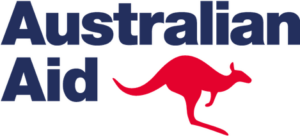Through TEAL – Technologically Enhanced Agricultural Livelihoods, CARE works to ensure that ethnic minority women’s role in the Arabica coffee value chain is visible and respected and that they are productive producers.
Background
Vietnam is among the top coffee exporters in the world. Coffee accounts for around 15 to 20 percent of the country’s total export of agricultural products and provides jobs for over half a million farmers. Across the industry, however, there is a stronger focus on production and productivity rather than postharvest, quality, and access to markets. Smallholder farmers, particularly ethnic minority producers, are yet to fully benefit from the export revenue and remain at the bottom of the value chain.
In the northern mountainous provinces of Dien Bien and Son La, ethnic minority women and men work hard in the Arabica coffee value chain. However, they are taking part in the production process as individual household units rather than collectively. This leads to low bargaining power, challenges in accessing inputs (such as fertilizer, seeds, or pesticides), and a lack of opportunities to jointly improve production, processing, and profits.
At the same time, household livelihoods, coupled with the traditional concepts of the roles that men and women should have, make it difficult for ethnic minority women to access markets and make decisions, ultimately preventing them from gaining a strong collective voice in the value chain.
Objective of TEAL
Through TEAL, CARE works to ensure that ethnic minority women’s role in the Arabica coffee value chain is visible and respected and that they are productive producers.
Ket outcomes:
- The contribution, role, and voice of ethnic minority women farmers are respected in the coffee value chain.
- Ethnic Minority Women benefit from increased income from the coffee value chain.
- Ethnic minority women in the coffee value chain have access to formal financial services and are supported by policy implementation.
How does TEAL work?
TEAL seeks to enable ethnic minority women to establish sustainable, resilient, and profitable livelihoods in the Arabica coffee value chain via the following 4 pillars:
- Pillar 1: Building on lessons learned and expanding the application of CARE approaches on women’s economic empowerment.
- Pillar 2: Alignment with the Government of Vietnam’s priorities and programs.
- Pillar 3: Combining a value chain approach and use of technology and innovation.
- Pillar 4: Engaging other stakeholders operating in the location.
Participants of TEAL
Location
Dien Bien and Son La provinces
Time
2017-2021
Donor
